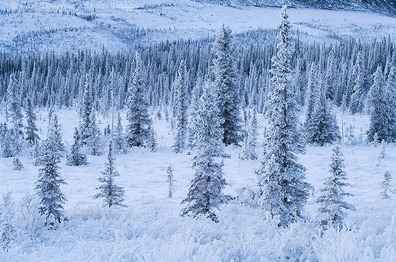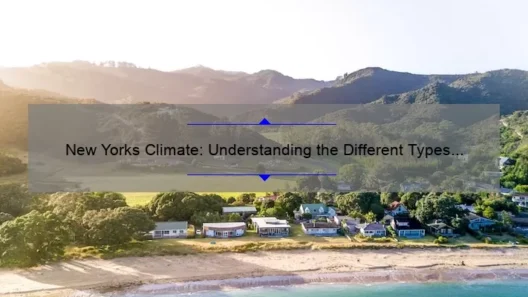The intersection of faith and environmental stewardship is a complex yet increasingly vital discourse in contemporary society. Various religious traditions offer unique perspectives on climate change, each grounded in their spiritual teachings and ethical imperatives. This exploration seeks to delve into how different faiths perceive and respond to the climate crisis, shedding light on the moral obligations posited by diverse religious teachings. From Judeo-Christian beliefs to Eastern philosophies, the essence of this dialogue is to understand the divine insights offered on humanity’s relationship with the Earth.
To begin with, many Judeo-Christian narratives emphasize the stewardship of creation. The Genesis account articulates a foundational understanding of humanity’s role in the world, portraying humans as caretakers of the Earth. This concept is profoundly infused with the notion of responsibility. Believers are urged to engage in sustainable practices that not only honor God’s creation but also acknowledge the interconnectedness of life. Various denominations and religious leaders advocate for ecological conservation as part of their faith doctrine, urging adherents to take active measures to combat climate change.
Moreover, the Catholic Church has been notably vocal about environmental issues. Pope Francis, in his encyclical “Laudato Si’,” underscores the urgency of addressing the ecological crisis. He implores the faithful to recognize the moral dimensions of global warming, unequivocally linking it to the suffering of the poor and marginalized. The encyclical advocates for integral ecology, a holistic approach that encompasses not just environmental degradation but also social justice and economic inequality. This rhetorical strategy reinforces the concept that caring for the planet is an act of devotion.
In the protestant community, there are varied interpretations regarding climate action. While some evangelical groups may remain skeptical about climate science, others passionately campaign for environmental justice, viewing it as a manifestation of their faith. These differing perspectives create a tapestry of engagement, where scriptural interpretation and scientific inquiry coalesce, providing a rich discourse on environmental ethics. Encouragingly, various churches are launching initiatives aimed at sustainability, embodying the principle that faith should inspire action.
Moving beyond the Abrahamic traditions, Hinduism presents a distinctive outlook on nature and climate change. The sacred texts of Hinduism such as the Vedas and Upanishads imbue nature with divinity, viewing flora and fauna as manifestations of the divine. The principle of ‘Ahimsa,’ or non-violence, extends to the treatment of the environment, positing that any harm to nature equates to harm against the divine. This intrinsic respect for all life forms galvanizes many Hindus to partake in eco-friendly practices, thereby fostering a sense of harmony between spirituality and the environment.
Buddhism offers another profound perspective, emphasizing mindfulness and interconnectedness. The Buddha’s teachings inspire adherents to consider the impact of their actions on others and the planet. In light of climate change, Buddhist communities advocate for a compassionate awareness of consumption habits and lifestyle choices. Engaging in meditation and contemplation of the natural world, many practitioners find motivation to advocate for environmental sustainability. Consequently, this faith perspective fosters a commitment to ecological mindfulness as a means of alleviating suffering, both human and non-human.
Islam, too, brings forth significant tenets concerning the environment. The Quran accentuates the idea of humans as ‘Khalifah’ (stewards) of the Earth, entrusted with its care. This theological framework prompts Muslims to engage in responsible environmental practices and to recognize the sanctity of creation. Islamic teachings often emphasize the balance and moderation in consumption and the importance of protecting natural resources. Various Islamic organizations and scholars have begun addressing climate change through a lens of social justice, encouraging communal action to mitigate ecological degradation.
In recent years, interfaith collaborations have emerged as potent forums for dialogue and action against climate change. Faith leaders from various traditions are coming together, recognizing the universality of the challenge. Initiatives such as the Council for a Sustainable Future have united diverse religious groups to advocate for policy changes, engage in community education, and promote sustainable practices. These efforts underscore a burgeoning recognition that climate change transcends individual belief systems, calling for a collective moral response grounded in respect for creation.
While the specifics may differ, a common thread runs through the teachings of numerous faiths: the call to protect and cherish the Earth. These spiritual narratives often bring forth a moral imperative that compels believers to not only contemplate their faith in the abstract but to translate it into actionable steps to combat climate change. From promoting renewable energy to engaging in collective advocacy, each faith tradition provides a reservoir of ethical guidance pertinent to contemporary ecological dilemmas.
The dialogue surrounding climate change within religious contexts is not merely an academic exercise but a grassroots movement poised to enact tangible change. As climate inaction intensifies, the voices of faith communities can wield immense influence, mobilizing millions towards environmental stewardship. The embrace of faith-based action against climate change encapsulates a profound acknowledgment of the sacredness of the Earth and humanity’s duty to protect it.
In conclusion, the exploration of what God says about climate change through various faith lenses reveals a nuanced yet unified call to action. Each belief system, with its unique narrative, champions the cause of environmental stewardship. The challenge ahead is not just to listen to these voices but to act upon them, ensuring a sustainable and just world for future generations. Engaging with these faith perspectives provides both inspiration and urgency in the collective mission to combat climate change, highlighting that every effort, big or small, contributes to the larger fight for our shared planet.








